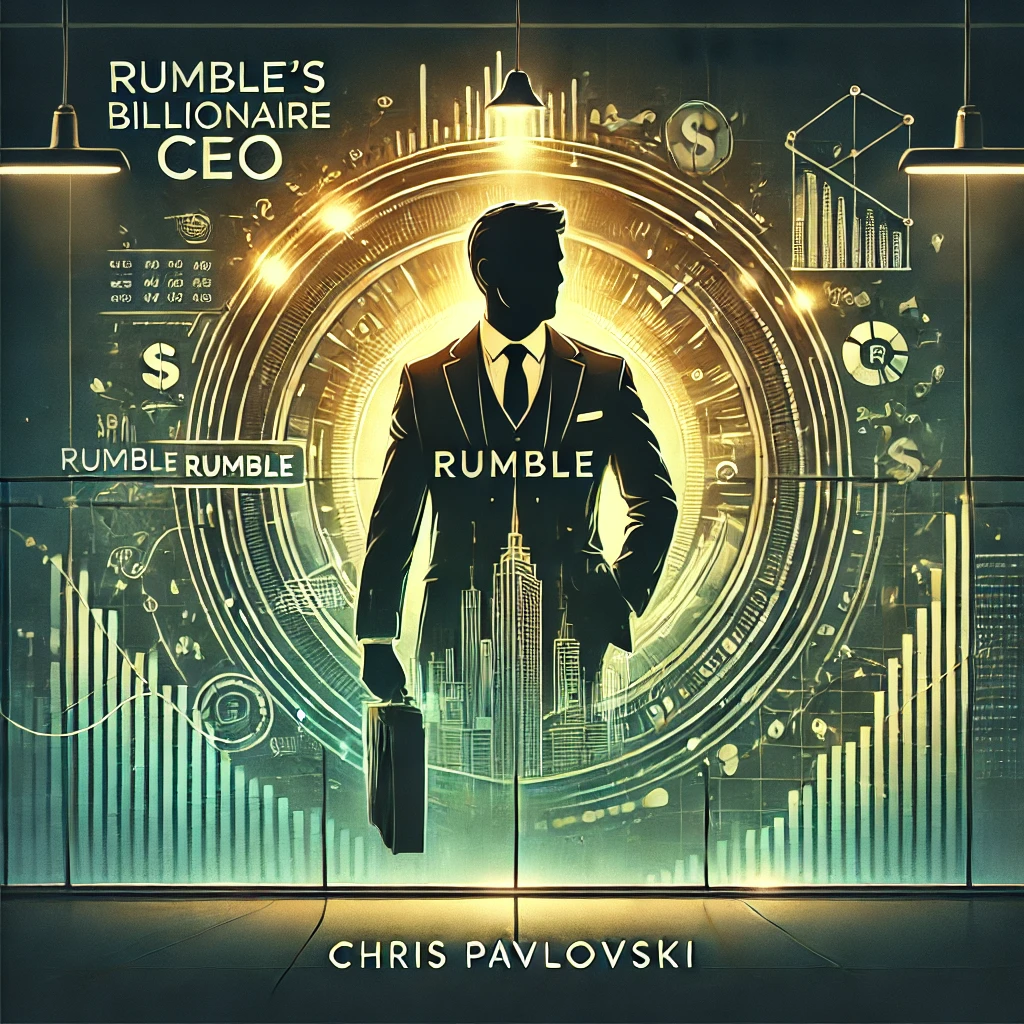January 6th, 2025
Chris Pavlovski, the founder and CEO of the YouTube alternative Rumble, had a particularly lucrative holiday season. On December 20, 2024, the platform announced a $775 million investment from cryptocurrency giant Tether, sending Rumble’s stock soaring over 100% in a week and catapulting Pavlovski into billionaire status.
Forbes estimates Pavlovski’s net worth at approximately $1.3 billion, thanks to his 25% stake in Rumble and options to acquire an additional 6% at a mere three cents per share. Even with Rumble’s volatile stock dipping 17% to $13.43 per share after peaking at $16.27, Pavlovski’s billionaire status remains intact.
Pavlovski’s fortune could grow even more significantly. He holds “earnout” shares and options that could increase his stake to 44% if Rumble’s stock surpasses $17.50 per share for 20 days within a 30-day window before September 2027. Currently, he wields 85% of the company’s voting power through a special class of shares, solidifying his control.
A Boost from Tether
The Tether investment provided a crucial lifeline for Rumble, which reported over $100 million in net losses for the first nine months of 2024 and had burned through two-thirds of the $300 million raised during its 2022 SPAC merger. As part of the deal, $250 million will fund growth initiatives, while $525 million will repurchase up to a quarter of Rumble’s stock, including up to 4% from Pavlovski.
Wedbush analyst Scott Devitt attributes Rumble’s stock surge to an improved balance sheet from the Tether investment and a favorable political climate for alternative news platforms. Pavlovski has promised that the Tether deal will propel Rumble into its next phase of growth.
Rumble’s Rise
Founded in 2013, Rumble began as a platform to assist small creators with rights management. The platform pivoted in 2020, gaining popularity among conservatives frustrated with Big Tech censorship. By the end of that year, Rumble’s monthly users skyrocketed from 1 million to 21 million. A $25 million investment from venture capital firm Narya in 2021, followed by its SPAC merger in 2022, further solidified its position as a right-leaning alternative to YouTube.
Despite the influx of funds, Rumble has struggled to maintain its momentum. Its monthly users peaked at 80 million in late 2022 but dropped to 67 million in the most recent quarter. The company has also faced challenges in competing with tech giants like YouTube and Twitch, even as it builds out its own ad sales system, cloud services, and exclusive content deals with creators like Donald Trump Jr., Russell Brand, and Dave Portnoy’s Barstool Sports.
Pavlovski’s Vision
Born in Canada to Macedonian immigrant parents, Pavlovski started his career building websites in Toronto during his teenage years. In 2011, he founded Cosmic Development, an IT outsourcing firm with clients including Rumble. Pavlovski’s vision for Rumble extends beyond content hosting; he aims to create a “mini-Google” that challenges Big Tech dominance.
Despite setbacks, Pavlovski remains optimistic. Highlighting the growth of what conservative commentators call a “parallel economy,” he’s determined to position Rumble as a key player in this emerging landscape. As he reposted a clip from investor Dan Bongino, Pavlovski made his stance clear: “You can get on that train or you can get run down by it—because it’s coming.”

